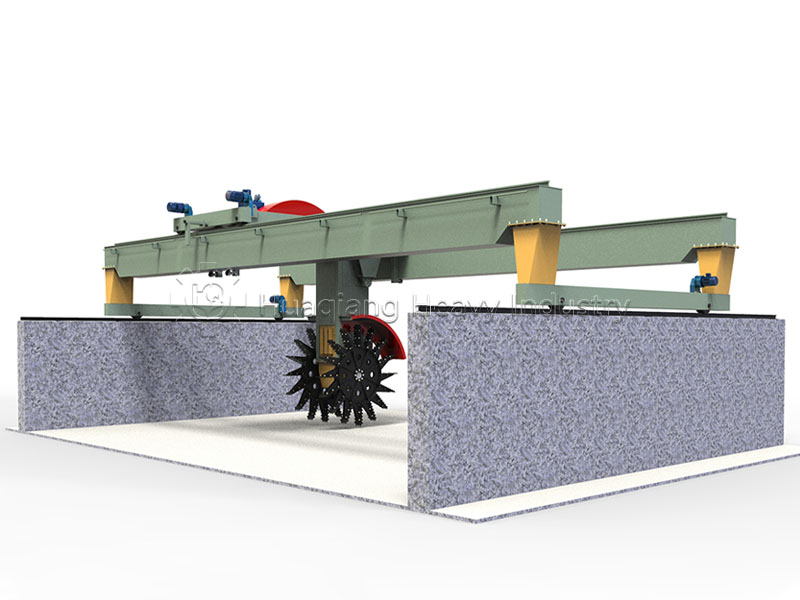Compost Revolution: How Do Large Wheel Turners Transform Farming?
In the wave of sustainable agriculture, a seemingly simple yet profoundly influential tool is quietly revolutionizing how we handle organic waste—the large wheel compost turner. This massive machine is not just farm equipment; it plays a crucial role in converting waste into “black gold,” working alongside a series of fertilizer processing devices to form a complete modern compost production chain.
Imagine this scenario: tons of agricultural waste, food scraps, and livestock manure pile up, gradually decomposing through microbial action. However, natural composting is slow and inefficient. This is where the large wheel compost turner demonstrates its value. Its giant rotating drum moves slowly through the compost piles, turning, crushing, and mixing the materials to create an ideal environment for microorganisms.
The work of a large compost turner goes far beyond simple mixing. Through precise mechanical movement, it regulates the oxygen levels, temperature, and moisture of the compost materials, accelerating the organic decomposition process. While traditional natural composting takes months, using a turner can shorten this process to just a few weeks.
In modern composting systems, the turner does not work alone. It collaborates with shredders, rotary screener machine, mixers, and packaging equipment to form an efficient fertilizer production line. Shredders pre-process raw materials, screening machines separate finished products that meet specifications, vertical disc mixer adjust fertilizer formulations, and packaging machines complete the final product packaging. This system not only improves compost quality but also enables large-scale production.
The advantages of large wheel turners are clear: they significantly enhance composting efficiency, reduce labor costs, and produce more uniform and stable organic fertilizers. These fertilizers are rich in humus and beneficial microorganisms, improving soil structure, increasing crop yields, and reducing the use of chemical fertilizers, thus creating a genuine agricultural ecological cycle.
From home gardens to large farms, from municipal waste treatment to agricultural industrial parks, large wheel turners and their supporting equipment are driving a global green agriculture revolution. They not only address the challenges of organic waste management but also transform waste into valuable resources, providing robust technical support for sustainable agricultural development.
As we stand before that fertile soil converted from waste, we can’t help but marvel: these seemingly cumbersome machines are actually intelligent bridges connecting waste and resource cycles, silently cultivating our shared green future.
